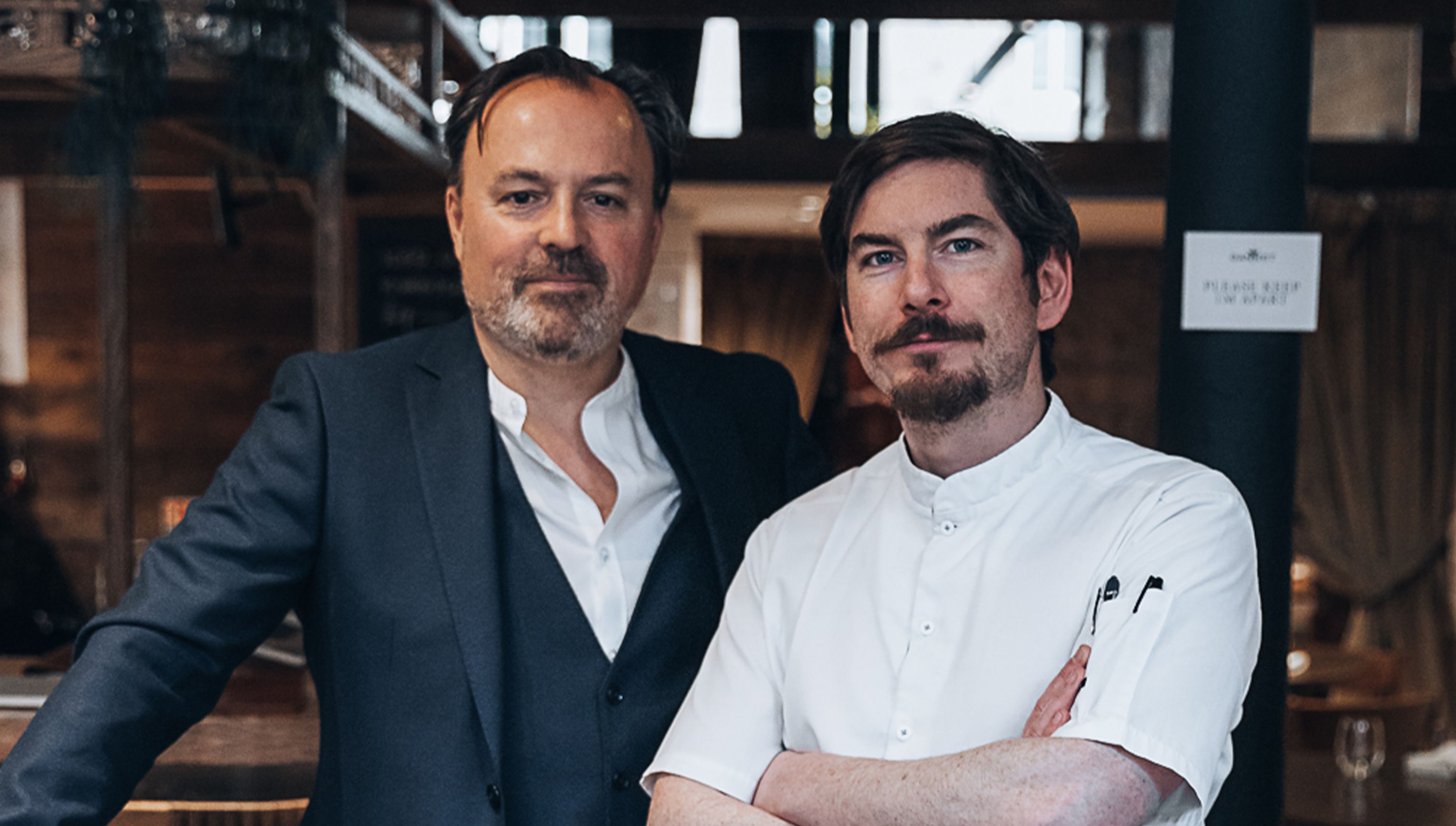More is more – the pressures and pleasures of the festive season
)
It’s nearly here again. The busiest, buzziest, most wonderful time of the year. More parties. More events. More special menus. Bigger spends. More beds filled. Bigger bottom lines?
So far, so positive. But for hospitality businesses, this time of year also brings the gift of more challenges. More changes and cancellations. More staff illness. More time-off requests. Higher costs. More stress.
How does an industry already strained by changing staff expectations, the cost-of-living crisis and the ongoing challenges of recruiting and retaining talent cope in what could potentially be their most profitable time of year?
Planday tells us the 5 observations to have on your hospitality radar for a more joyful festive season…
1. More customer focus
It’s this simple, clear and laser-focused philosophy that drives Kevin Dow, general manager and front of house at The Gannet restaurant in Glasgow: “The most important person in our business is the customer. Without them we wouldn’t exist.” Spending time with customers is also his favourite part of the job.
With nearly two decades of festive-season service under his belt, Kevin has observed plenty of changes in customer behaviours, but how they respond to genuine hospitality is a constant.
“Welcoming people is what hospitality is all about. The same as welcoming someone into your home. Putting people at ease from the moment they walk in makes a big difference and sets the tone for the experience ahead of them. It’s important to remember that you’re not just serving nice plates of food, you’re hosting people and creating what is hopefully a memorable experience.”
Food for thought
What are you doing to personalise your guest experience? Post-booking email surveys are an obvious one. But have you thought about hiring mystery guests once a quarter for unbiased, no-holds-barred feedback?

2. More belt-tightened budgets
Noting that many event budgets are more constrained these days, Kevin and his team, led by chef/patron Peter McKenna, are preparing for a slightly more subdued festive season in 2023.
“Office party budgets aren’t what they used to be – an all-expenses-paid outing for business colleagues. We’re not seeing so many of those bookings these days. In fact, we’ve just had two provisional Christmas bookings cancelled because entertaining budgets have been slashed. Hospitality businesses need to prepare for that.”
On the back of companies tightening their belts, though, The Gannet has also noticed more bookings from smaller parties with better spend per head, and have tweaked their menus, reservations and service accordingly. “Smaller groups, for example, are more likely to go for a full drinks pairing or to start with a cocktail or end with a digestif than, say, a group of 10 or 12, where multiplying those extras really adds up.”
Food for thought
The average Brit eats out 1.5 times a week, spending up to £53 a head each time. What can you do to encourage greater spend during the holidays? A special cocktail? Off-peak prix-fixe?
3. More flexibility = happier staff
It’s no secret that the pandemic changed the way the whole world thinks about work. Work-life balance? No longer a nice-to-have but a bare-minimum expectation, especially for younger workers. In its 2023 Global Gen Z and Millennial survey, Deloitte found that this generation places a high priority on reduced or flexible working hours and wants companies to create more part-time roles, despite the financial consequences of working fewer hours.
In a sector still struggling to attract and retain workers to replace those who left during the pandemic’s ‘Great Resignation’, being mindful of this shift in expectations is critical to nurturing a culture where staff are engaged, happy and want to stay.
Kevin Dow takes a ‘firm but fair’ approach to managing requests for time off and shift swaps, believing that transparent communication is the key to building a culture of openness and fun, especially during the festive season, where expectations are heightened and the pressure is on staff to deliver excellent customer experiences.
“Times have changed and the hospitality industry isn’t like it was when I started – I would just say yes to everything and never questioned my boss. Now people feel comfortable in saying no or asking for what they want. And I’m quite generous in accommodating requests for time off, as long as service isn’t affected. At the end of the day, I still need enough people in the kitchen and on the floor to deliver a great service for our customers. You get back the flexibility you give.”
Food for thought
Gen Z workers care deeply about mental health. Create a supportive environment through mandatory breaks and activities that promote career development. One study found that employers who demonstrate they care about mental health improved employee retention rates by 33%. Planday’s staffing and scheduling software offers great flexibility for your staff and for you. See here for more.

4. More listening, more storytelling
Responding to customers’ greater interest and awareness around provenance, sustainability and food trends (such as plant-based dishes and no/low waste) can mean a real difference to customer satisfaction – and on profits. And remaining authentic to what makes your business unique is a key driver in customer loyalty.
For The Gannet, being able to tell a positive story about where their ingredients come from, how they’re prepared and what customers can expect is all part of the experience. So while traditional roast turkey probably won’t be making an appearance on restaurant’s six-course tasting menu in November and December, Scottish game birds and foraged mushrooms almost certainly will.
In dining rooms where menus change frequently or present seasonal, weekly or daily specials, making sure staff are briefed and confidently up to date about dishes, ingredients and suppliers creates an opportunity for relaxed, informed connection with customers.
Kevin describes his own management style as relaxed and informed, and he encourages the same attitude in all of his team. “However you think about ‘fine dining’ and what that means, beyond the artistry and skill of what’s on the plate, it’s about being knowledgeable and feeling able to talk people through menus and through wine lists in a relaxed and natural way, without it being intimidating for the customer. Having that opportunity to tell them about what’s gone into what they’re about to enjoy is a huge part of what we do and why we have a loyal base of regulars.”
Food for thought
Is it time for a brand refresh? Define what makes your business unique and create a clear narrative that you can build into staff onboarding and service briefings.
5. More positive reviews
From customers. From staff. When all goes well, any behind-the-scenes challenges that arise during this hectic last quarter of the year should swiftly be on their way when they’re dealt with proactively.
As our mobiles have morphed into virtual personal assistants – providing instant information, booking facilities, reviews and opportunities for sharing content and tagging brands – never have businesses been more accessible (vulnerable?) to opinions and photo evidence, good and bad. And the bad ones can have a powerful effect in decision-making around whether to book or not to book.
So how much attention does Kevin pay to customers posting on social media? “A lot! I mean, the majority of the feedback we get is very positive. And I’ll reply to everyone who has a genuine issue. The thing is, if anything wasn’t 100% on the night, I’d be aware of it. So if I read or see something that I somehow wasn’t made aware of, I’ll address it. You do get people who won’t say anything at the time and then will go away and write something negative. And if someone says that, say, they weren’t happy with the seasoning on something, I’ll double-check with the kitchen to make sure they know and that something hadn’t gone out wrongly.”
This honest, proactive approach, combined with an unswerving commitment to the customer, is the antidote to the aggregate of small negatives – tiny issues that, when added up, can morph into an overwhelmingly negative experience. If you fix the first tiny issue, that turns into overwhelmingly positive.
Food for thought
Word of mouth is powerful, and the power of customer reviews has never been more relevant. A recent study showed that higher Yelp scores help restaurants to sell tables 19% more frequently during peak times. Confront negative reviews head-on and maintain control of your ratings.
Happy Q4!
Need more help with flexible staffing? At Planday, they provide the tools you need for scheduling and time based management. Click here for a demo.


